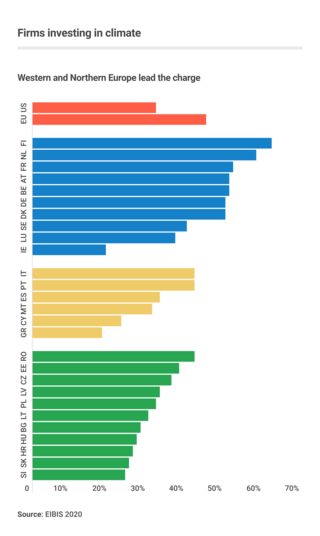
Infrastructure is the set of facilities and systems that serve a country, city, or other area, and encompasses the services and facilities necessary for its economy, households and firms to function. Infrastructure is composed of public and private physical structures such as roads, railways, bridges, airports, public transit systems, tunnels, water supply, sewers, electrical grids, and telecommunications. In general, infrastructure has been defined as "the physical components of interrelated systems providing commodities and services essential to enable, sustain, or enhance societal living conditions" and maintain the surrounding environment.

Brookfield Corporation is a Canadian multinational company that is one of the world's largest alternative investment management companies, with over US$900 billion of assets under management in 2023. It focuses on direct control investments in real estate, renewable power, infrastructure, credit and private equity. The company invests in distressed securities through Oaktree Capital, which it bought in 2019. Brookfield's headquarters are in Toronto.
A green economy is an economy that aims at reducing environmental risks and ecological scarcities, and that aims for sustainable development without degrading the environment. It is closely related with ecological economics, but has a more politically applied focus. The 2011 UNEP Green Economy Report argues "that to be green, an economy must not only be efficient, but also fair. Fairness implies recognizing global and country level equity dimensions, particularly in assuring a Just Transition to an economy that is low-carbon, resource efficient, and socially inclusive."

The Carbon Trust is a United Kingdom-based consultancy established in March 2001. Its aim is to accelerate the pace of private sector decarbonisation and increase energy efficiency in the United Kingdom and worldwide.

BlackRock, Inc. is an American multinational investment company. Founded in 1988, initially as an enterprise risk management and fixed income institutional asset manager, BlackRock is the world's largest asset manager, with US$11.5 trillion in assets under management as of December 31, 2023. Headquartered in New York City, BlackRock has 70 offices in 30 countries, and clients in 100 countries.

Business action on climate change is a topic which since 2000 includes a range of activities relating to climate change, and to influencing political decisions on climate change-related regulation, such as the Kyoto Protocol. Major multinationals have played and to some extent continue to play a significant role in the politics of climate change, especially in the United States, through lobbying of government and funding of climate change deniers. Business also plays a key role in the mitigation of climate change, through decisions to invest in researching and implementing new energy technologies and energy efficiency measures.

The CDP is an international non-profit organisation based in the United Kingdom, Japan, India, China, Germany, Brazil and the United States that helps companies, cities, states, regions and public authorities disclose their environmental impact. It aims to make environmental reporting and risk management a business norm, driving disclosure, insight, and action towards a sustainable economy. In 2022, nearly 18,700 organizations disclosed their environmental information through CDP.
Energy Saving Trust is a British organization devoted to promoting energy efficiency, energy conservation, and the sustainable use of energy, thereby reducing carbon dioxide emissions and helping to prevent man-made climate change. It was founded in the United Kingdom as a government-sponsored initiative in 1992, following the global Earth Summit.

Jeremy Leggett is a British social entrepreneur and writer. He founded and was a board director of Solarcentury from 1997 to 2020, an international solar solutions company, and founded and was chair of SolarAid, a charity funded with 5% of Solarcentury's annual profits that helps solar-lighting entrepreneurs get started in Africa (2006–2020). SolarAid owns a retail brand SunnyMoney that was for a time Africa's top-seller of solar lighting, having sold well over a million solar lights, all profits recycled to the cause of eradicating the kerosene lantern from Africa.

Macquarie Group Limited, more commonly known as Macquarie Bank, is an Australian multinational investment banking and financial services group headquartered in Sydney and listed on the ASX.

PGIM, Inc. (PGIM), formerly known as Prudential Investment Management, functions as the asset management arm of Prudential Financial, an American life insurance company.
Morrison & Co is a specialist global infrastructure manager, investing in both private and listed markets, with offices in New Zealand, Australia, United Kingdom, United States and Singapore.
A green bond is a fixed-income financial instruments (bond) which is used to fund projects that have positive environmental benefits. When referring to climate change mitigation projects they are also known as climate bonds. Green bonds follow the Green Bond Principles stated by the International Capital Market Association (ICMA), and the proceeds from the issuance of which are to be used for the pre-specified types of projects. The categories of eligible green projects include for example: Renewable energy, energy efficiency, pollution prevention and control, environmentally sustainable management of living natural resources and land use, terrestrial and aquatic biodiversity, clean transportation, climate change adaptation.

Green Investment Group Limited (GIG), formerly the UK Green Investment Bank, is a specialist in green infrastructure principal investment, project delivery and the management of portfolio assets and related services. It is owned by the Macquarie Group.

Aquila Capital is an investment management company with headquarters in Hamburg, Germany. It was founded in 2001 by Roman Rosslenbroich and Dieter Rentsch. Aquila Capital focuses on real assets and sustainable investments. The company manages more than €14.7 billion for institutional investors and is among Europe’s leading investment companies in climate change mitigation.

Richard L. Sandor is an American businessman, economist, and entrepreneur. He is chairman and CEO of the American Financial Exchange (AFX) established in 2015, which is an electronic exchange for direct interbank/financial institution lending and borrowing. The AFX flagship product, the AMERIBOR benchmark index, reflects the actual borrowing costs of thousands of regional and community banks across the U.S. and is one of the short-term borrowing rates, along with the Secured Overnight Financing Rate, vying to replace U.S. dollar Libor as a benchmark in the U.S.

Climate finance is an umbrella term for financial resources such as loans, grants, or domestic budget allocations for climate change mitigation, adaptation or resiliency. Finance can come from private and public sources. It can be channeled by various intermediaries such as multilateral development banks or other development agencies. Those agencies are particularly important for the transfer of public resources from developed to developing countries in light of UN Climate Convention obligations that developed countries have.

Renat Heuberger is the co-founder and Senior Adviser of South Pole, a carbon finance consultancy. He was CEO until resigning on 10 November, 2023. He has been engaged as a social entrepreneur in the fields of sustainability, climate change and renewable energies since 1999.

The Clean Energy Finance Corporation (CEFC) is an Australian Government-owned green bank that invests in clean energy, to help achieve Australia's national goal of net zero emissions by 2050. The CEFC invests billions of dollars on behalf of the Australian Government in economy-wide decarbonisation opportunities. It aims to help transform the Australian energy grid, as well as supporting sustainable housing initiatives, and climate tech innovators. It was established by and operates under the Clean Energy Finance Corporation Act 2012, along with other subsidiary legislation. As of March 2024 Steven Skala is CEFC chair and Ian Learmonth is CEFC Chief Executive Officer.
Sustainable finance is the set of practices, standards, norms, regulations and products that pursue financial returns alongside environmental and/or social objectives. It is sometimes used interchangeably with Environmental, Social & Governance (ESG) investing. However, many distinguish between ESG integration for better risk-adjusted returns and a broader field of sustainable finance that also includes impact investing, social finance and ethical investing.















